July 3 stands as one of history’s most eventful days, witnessing the rise and fall of empires, groundbreaking discoveries, and moments that shaped our modern world across centuries of human achievement.

Politics and Government Events on July 3
1952 – Constitution of Puerto Rico Approved by Congress
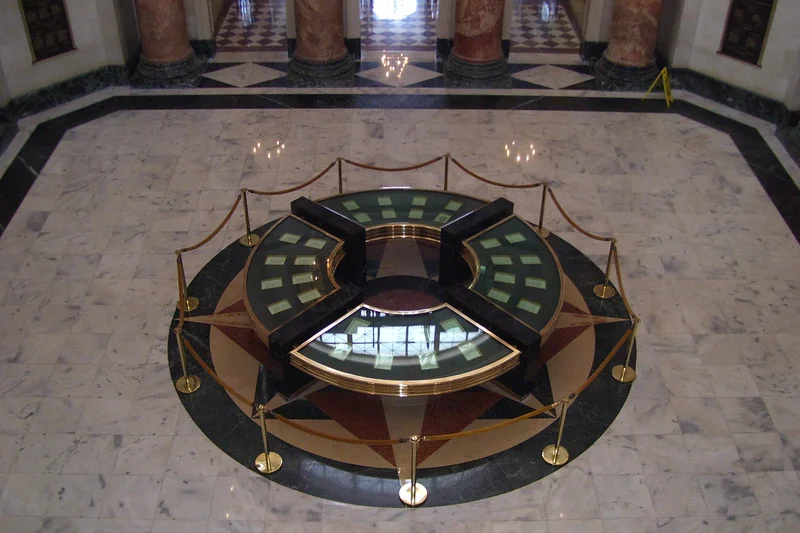
The United States Congress approved Puerto Rico’s Constitution on this historic date. This milestone granted the island commonwealth status within the American political system.
The constitutional framework established Puerto Rico’s internal governance structure while maintaining its relationship with the United States. This political arrangement continues to define the island’s unique status today.
1970 – Falls Curfew Begins in Belfast
British authorities imposed a strict curfew on the Falls Road area of Belfast during The Troubles. The military operation aimed to restore order amid escalating sectarian violence.
The curfew lasted several days and involved house-to-house searches by British forces. This controversial action deepened tensions between republican communities and British authorities in Northern Ireland.
1979 – Carter Signs Secret Afghan Aid Directive
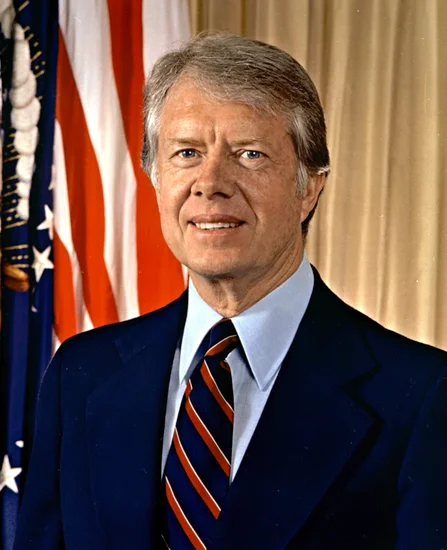
President Jimmy Carter signed the first directive authorizing covert assistance to Afghan opponents of the Soviet-backed regime. This classified decision marked America’s initial involvement in the Afghan conflict.
The secret aid program would eventually expand into a major Cold War battleground. Carter’s directive set the stage for years of proxy warfare between superpowers.
1996 – Stone of Scone Returns to Scotland
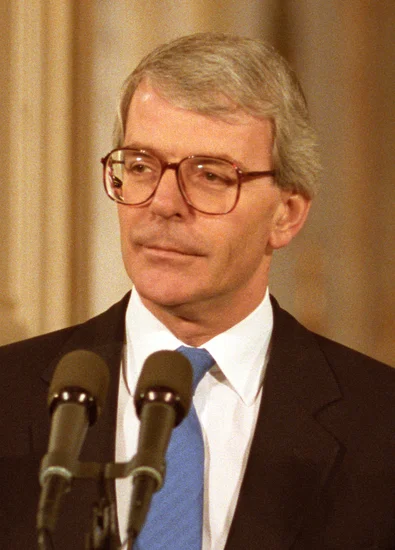
British Prime Minister John Major announced the ancient Stone of Scone would return to Scotland after centuries in England. This symbolic gesture aimed to address Scottish nationalist sentiments.
The coronation stone had been removed from Scotland in 1296 by Edward I. Its return represented a significant cultural victory for Scottish independence advocates.
2013 – Egyptian Military Removes President Morsi

Egyptian military forces removed President Mohamed Morsi from office following massive nationwide protests. Supreme Constitutional Court President Adly Mansour assumed interim leadership pending new elections.
The military intervention ended Morsi’s brief presidency and plunged Egypt into political turmoil. This dramatic coup reshaped Middle Eastern politics and democratic movements across the region.
Military and Naval History on July 3
1940 – British Attack French Fleet in Algeria
The Royal Navy launched a devastating attack on French naval forces at Mers-el-Kébir to prevent German capture. British forces sank one battleship, damaged two others, while one escaped to France.
This controversial operation strained the Anglo-French alliance but secured vital strategic objectives. Churchill’s difficult decision demonstrated Britain’s determination to deny naval assets to Nazi Germany.
1944 – Soviet Forces Liberate Minsk
The Red Army’s Minsk Offensive successfully cleared German troops from the Belarusian capital. This major victory marked a crucial breakthrough in the Soviet summer campaign.
The liberation of Minsk opened the path to Poland and demonstrated Soviet military superiority. German Army Group Center suffered catastrophic losses in this devastating defeat.
1967 – Battle of the Crater in Aden
The Argyll and Sutherland Highlanders retook the Crater district following an Arab Police mutiny. This decisive action restored British control during the Aden Emergency.
The battle demonstrated British resolve to maintain their strategic position in South Arabia. However, the victory proved temporary as Britain withdrew from Aden later that year.
1988 – USS Vincennes Shoots Down Iranian Airliner
The USS Vincennes mistakenly shot down Iran Air Flight 655 over the Persian Gulf, killing all 290 civilians aboard. The warship’s crew had misidentified the passenger aircraft as a hostile F-14 fighter.
This tragic incident escalated tensions between the United States and Iran during the Iran-Iraq War. The shoot-down became a major diplomatic crisis and compensation dispute lasting years.
Science and Discovery Milestones on July 3
1938 – Mallard Sets Steam Locomotive Speed Record
The British locomotive Mallard achieved a world speed record of 125.88 miles per hour in England. This remarkable feat demonstrated the pinnacle of steam locomotive engineering and performance.
The record-breaking run occurred during a specially planned high-speed test. Mallard’s achievement remains the official world speed record for steam locomotives to this day.
1970 – Dan-Air Flight 1903 Crashes in Spain

Dan-Air Flight 1903 crashed into Les Agudes mountain in Catalonia’s Montseny Massif, killing all 112 people aboard. The tragic accident highlighted aviation safety challenges in mountainous terrain.
Investigation revealed navigation errors contributed to the disaster near Arbúcies village. This crash led to improved flight safety protocols and navigation systems for commercial aviation.
1988 – Fatih Sultan Mehmet Bridge Opens
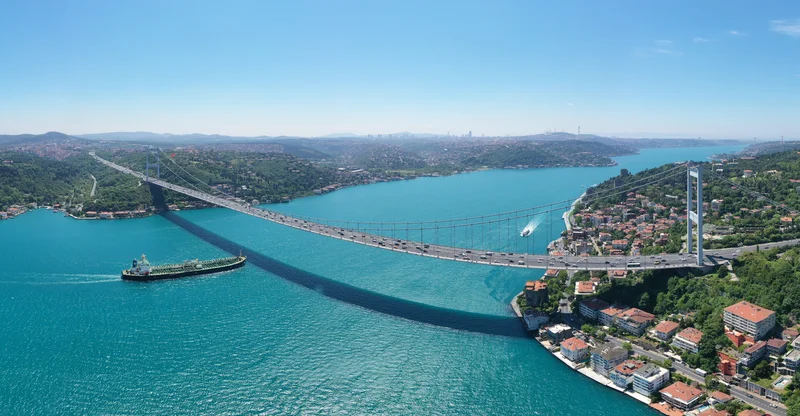
The Fatih Sultan Mehmet Bridge in Istanbul connected Europe and Asia across the Bosphorus strait. This engineering marvel provided the second vital link between two continents.
The bridge’s completion enhanced transportation and economic development in the region. Istanbul’s strategic position as a transcontinental hub was significantly strengthened by this achievement.
Cultural and Arts Events on July 3
1913 – Confederate Veterans Reenact Pickett’s Charge
Confederate veterans at the Great Reunion of 1913 reenacted the famous Pickett’s Charge at Gettysburg. Union survivors met them with outstretched hands of friendship at the battle’s high-water mark.
This emotional reconciliation symbolized healing between former enemies fifty years after the Civil War. The reunion demonstrated how bitter divisions could transform into mutual respect and understanding.
1938 – Roosevelt Dedicates Eternal Light Peace Memorial
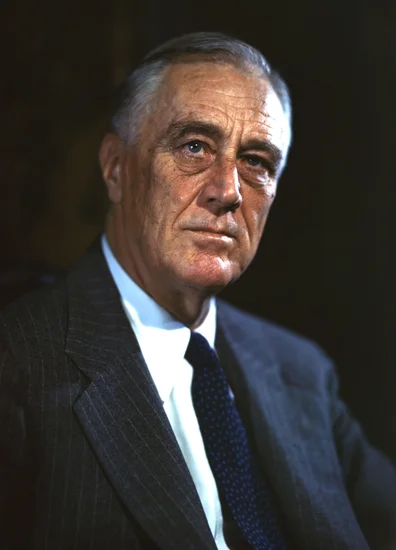
President Franklin D. Roosevelt dedicated the Eternal Light Peace Memorial at Gettysburg Battlefield and lit the eternal flame. This solemn ceremony honored the sacrifices made during America’s bloodiest battle.
The memorial’s dedication emphasized national unity and reconciliation between North and South. Roosevelt’s presence highlighted the federal government’s commitment to preserving Civil War battlefields.
1973 – David Bowie Retires Ziggy Stardust

David Bowie shocked audiences by announcing the retirement of his iconic Ziggy Stardust persona during the tour’s final performance. The surprise declaration marked the end of one of rock’s most influential characters.
Bowie’s dramatic announcement at London’s Hammersmith Odeon stunned fans and band members alike. This theatrical moment demonstrated his artistic evolution and willingness to reinvent himself creatively.
Religious and Social Events on July 3
1952 – SS United States Maiden Voyage
The SS United States departed on her maiden voyage to Southampton, ultimately capturing the Blue Riband from the RMS Queen Mary. This achievement marked America’s dominance in transatlantic passenger service.
The luxury liner’s record-breaking speed demonstrated American shipbuilding excellence and engineering prowess. Her maiden voyage represented the pinnacle of ocean liner travel in the jet age.
Business and Economic Events on July 3
1904 – Theodor Herzl Dies
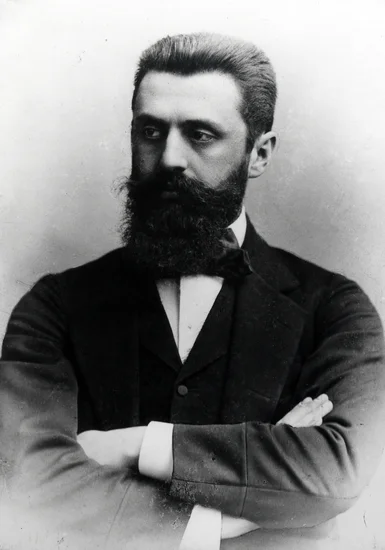
Theodor Herzl, the visionary founder of modern political Zionism, died at age 44 in Austria. His tireless advocacy for a Jewish homeland profoundly influenced 20th-century Middle Eastern politics.
Herzl’s writings and political activities laid the groundwork for the eventual establishment of Israel. His death marked the end of Zionism’s founding era but his vision continued inspiring future generations.
1935 – André Citroën Dies

André Citroën, founder of the revolutionary Citroën automobile company, passed away in France. His innovative manufacturing techniques and mass production methods transformed the European automotive industry.
Citroën pioneered front-wheel drive technology and introduced assembly line production to Europe. His entrepreneurial vision established one of France’s most enduring industrial success stories.
1916 – Hetty Green Dies
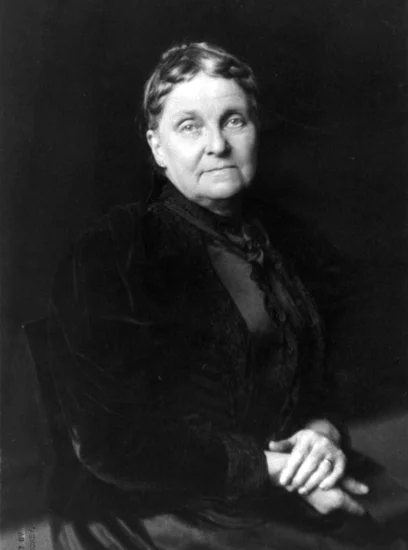
Hetty Green, known as the “Witch of Wall Street,” died as one of America’s wealthiest individuals. Her shrewd financial acumen and frugal lifestyle made her a legendary figure in American business.
Green’s investment strategies and real estate holdings accumulated enormous wealth during the Gilded Age. Her success challenged gender stereotypes and demonstrated women’s capabilities in high finance.
Transportation and Infrastructure on July 3
1967 – Aden Emergency Battle
British forces successfully retook the strategic Crater district during the Aden Emergency. The Argyll and Sutherland Highlanders’ decisive action restored control over this vital transportation hub.
The battle secured critical supply routes and demonstrated British military effectiveness in urban warfare. However, this tactical victory could not reverse Britain’s strategic withdrawal from South Arabia.
1979 – Carter’s Afghan Policy
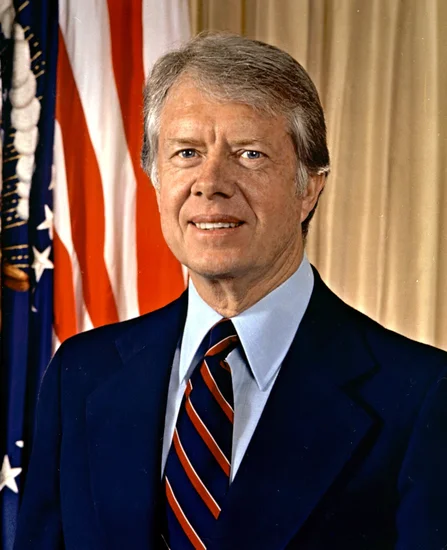
President Carter’s secret directive authorized covert support for Afghan resistance fighters. This classified decision initiated America’s involvement in one of the Cold War’s longest proxy conflicts.
The aid program would eventually funnel billions of dollars through Pakistan to Afghan mujahideen. Carter’s policy decision had far-reaching consequences for regional stability and superpower relations.
1996 – Stone Returns to Scotland
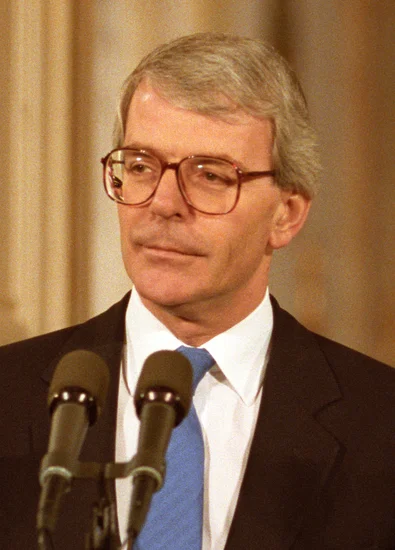
The announcement of the Stone of Scone’s return marked a significant cultural milestone. This ancient symbol of Scottish sovereignty would finally come home after seven centuries.
The stone’s return represented both historical justice and political calculation by the British government. This gesture aimed to strengthen the Union while acknowledging Scottish cultural heritage.
Sports and Recreation on July 3
1927 – Gérard de Courcelles Dies
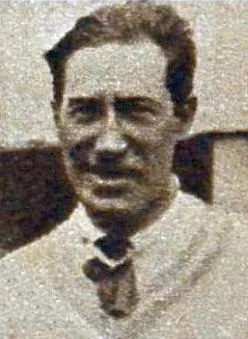
French racing driver Gérard de Courcelles died in a motorsport accident, highlighting the dangerous nature of early automotive competition. His death demonstrated the risks faced by pioneering race car drivers.
De Courcelles’ career reflected the courage required for early motorsport participation. His sacrifice contributed to the development of modern racing safety standards and protocols.
1994 – Lew Hoad Dies

Australian tennis champion Lew Hoad passed away, ending one of the sport’s most celebrated careers. His powerful playing style and Grand Slam victories made him a tennis legend.
Hoad’s rivalry with other tennis greats defined the sport’s golden era. His death marked the end of an era in professional tennis and Australian sporting excellence.
1995 – Pancho Gonzales Dies

American tennis legend Pancho Gonzales died, concluding a remarkable career that broke racial barriers in professional tennis. His dominance in the 1950s and 1960s inspired future generations of players.
Gonzales overcame significant social obstacles to achieve tennis greatness. His legacy extended beyond sports, demonstrating how athletic excellence could challenge societal prejudices and stereotypes.
Notable Births on July 3
1962 – Tom Cruise Born

Thomas Cruise Mapother IV was born in Syracuse, New York, beginning a journey toward Hollywood superstardom. His childhood experiences would later influence his intense, dedicated approach to acting.
Cruise would become one of cinema’s most bankable stars through blockbuster franchises like Mission: Impossible. His commitment to performing dangerous stunts personally revolutionized action filmmaking standards.
1987 – Sebastian Vettel Born

German racing prodigy Sebastian Vettel was born in Heppenheim, destined for Formula One greatness. His early passion for motorsport would lead to multiple world championships.
Vettel’s precision driving and strategic intelligence made him one of F1’s youngest champions. His Red Bull Racing dominance in the early 2010s established him among racing’s elite drivers.
1971 – Julian Assange Born

Australian journalist Julian Assange was born in Townsville, beginning a controversial career in information transparency. His childhood interest in computer technology shaped his future WikiLeaks activism.
Assange’s platform would publish classified government documents, sparking global debates about press freedom. His work fundamentally challenged traditional boundaries between journalism and state security.
1939 – Brigitte Fassbaender Born

German mezzo-soprano Brigitte Fassbaender was born in Berlin, launching one of opera’s most distinguished careers. Her musical family background provided early exposure to classical performance.
Fassbaender’s interpretations of Wagner and Strauss established her as a leading opera singer. Her artistic excellence and stage presence made her a beloved figure in classical music.
1970 – Audra McDonald Born

American actress and singer Audra McDonald was born in Berlin, Germany, to military parents. Her diverse cultural exposure during childhood influenced her later artistic versatility.
McDonald would become Broadway’s most Tony-awarded performer through her exceptional vocal abilities. Her crossover success in theater, television, and film demonstrated remarkable artistic range.
1948 – Dave Barry Born

Humor columnist Dave Barry was born in Armonk, New York, beginning a career that would make millions laugh. His observational comedy style emerged from everyday American experiences.
Barry’s Pulitzer Prize-winning columns captured the absurdity of modern life with wit and insight. His books and articles established him as one of America’s premier humorists.
1927 – Ken Russell Born

British filmmaker Ken Russell was born in Southampton, England, destined to become one of cinema’s most provocative directors. His artistic vision would challenge conventional filmmaking boundaries.
Russell’s biographical films about classical composers revolutionized the genre through bold visual storytelling. His controversial approach to historical subjects sparked debates about artistic interpretation.
1919 – Eddy Paape Born

Belgian comic book illustrator Eddy Paape was born in Grivegnée, beginning a career that would influence European comics. His artistic training provided the foundation for distinctive visual storytelling.
Paape’s work on series like “Luc Orient” established him as a master of science fiction comics. His detailed artwork and compelling narratives helped elevate the medium’s artistic reputation.
Notable Deaths on July 3
1971 – Jim Morrison Dies

The Doors frontman Jim Morrison died in Paris at age 27, ending one of rock’s most influential careers. His poetic lyrics and charismatic stage presence had defined the counterculture movement.
Morrison’s mysterious death in a Paris bathtub sparked decades of speculation and conspiracy theories. His artistic legacy continues inspiring musicians and poets worldwide.
1969 – Brian Jones Dies

Rolling Stones guitarist Brian Jones died at age 27, becoming one of rock’s first major casualties. His innovative musical experimentation had helped define the band’s early sound.
Jones’ death marked the end of the Rolling Stones’ founding era and highlighted rock stardom’s dangers. His musical contributions influenced countless musicians and bands.
1904 – Theodor Herzl Dies

Theodor Herzl, founder of modern political Zionism, died at age 44 in Austria. His visionary leadership had transformed Jewish nationalism from dream to political reality.
Herzl’s writings and diplomatic efforts laid groundwork for the eventual establishment of Israel. His death marked the end of Zionism’s founding period but his vision endured.
2012 – Andy Griffith Dies

American actor Andy Griffith died at age 86, ending a beloved television and film career. His portrayal of Sheriff Andy Taylor had embodied small-town American values.
Griffith’s wholesome screen persona provided comfort during turbulent social changes. His legacy includes timeless entertainment that continues resonating with audiences.
1989 – Jim Backus Dies

American actor Jim Backus died at age 76, concluding a versatile career spanning radio, television, and film. His voice work as Mr. Magoo and his role on Gilligan’s Island made him instantly recognizable.
Backus’ comedic timing and distinctive voice entertained multiple generations of audiences. His contributions to American entertainment remain beloved by fans worldwide.
1986 – Rudy Vallée Dies
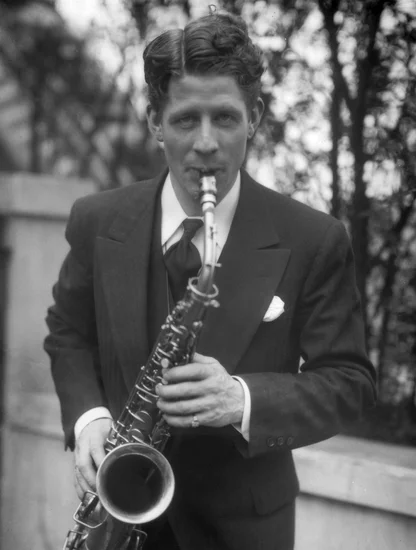
American singer and actor Rudy Vallée died at age 84, ending a career that spanned the transition from vaudeville to television. His crooning style had influenced popular music development.
Vallée’s use of megaphones and intimate singing style revolutionized popular performance. His career bridged multiple entertainment eras and helped establish modern celebrity culture.
1957 – Dolf Luque Dies

Cuban baseball player Dolf Luque died at age 66, concluding a pioneering career in Major League Baseball. His success had broken barriers for Latin American players.
Luque’s pitching excellence and World Series victory demonstrated Latin talent to skeptical audiences. His legacy paved the way for future generations of Hispanic baseball stars.
1995 – Eddie Mazur Dies
Canadian ice hockey player Eddie Mazur died at age 65, ending a career that contributed to the sport’s development. His professional playing experience spanned hockey’s expansion era.
Mazur’s dedication to the game helped establish hockey’s popularity across North America. His career represented the determination required for professional athletic success.
Holidays and Observances on July 3
Independence Day Celebration in Belarus

Belarus celebrates Independence Day on July 3, commemorating the liberation of Minsk from Nazi occupation by Soviet troops in 1944. This national holiday honors the courage and sacrifice of those who fought for freedom.
The celebration includes military parades, cultural performances, and remembrance ceremonies throughout the country. Belarusians gather to honor their history and celebrate their national sovereignty.
Emancipation Day in US Virgin Islands
The United States Virgin Islands observes Emancipation Day on July 3, marking the end of slavery in the Danish West Indies. This significant holiday celebrates freedom and human dignity.
The observance includes cultural festivals, historical reenactments, and educational programs about the islands’ history. Communities come together to honor their ancestors and celebrate their heritage.
Women’s Day in Myanmar
Myanmar celebrates Women’s Day on July 3, recognizing the contributions and achievements of women in society. This observance highlights gender equality and women’s rights.
The day features special programs, awards ceremonies, and advocacy events throughout the country. Women’s organizations use this opportunity to promote equality and empowerment initiatives.
